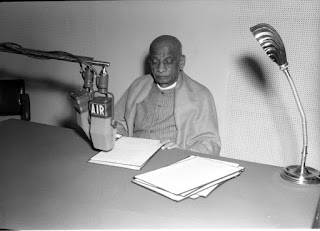Sardar Patel Drawing and Essay Competition
सरदार पटेल चित्र और निबंध स्पर्धा ।
સરદાર પટેલ ચિત્ર અને નિબંધ સ્પર્ધા
सरदार पटेल चित्र और निबंध स्पर्धा ।
સરદાર પટેલ ચિત્ર અને નિબંધ સ્પર્ધા
Hello friends, We are organizing “Sardar Patel Drawing and Essay Competition” for the children.
Any child whose age less than or equal to 20 can participate in the competition.
Send us a Drawing or Essay on theme “Sardar Patel”
Best Drawing will be posted on our Facebook page with Name & Drawing on 31st October, 2017 (Sardar Vallabhbhai Patel Birth Anniversary). Prize will also be given to winners.
Please, go to the following link for registration:
Any child whose age less than or equal to 20 can participate in the competition.
Send us a Drawing or Essay on theme “Sardar Patel”
Best Drawing will be posted on our Facebook page with Name & Drawing on 31st October, 2017 (Sardar Vallabhbhai Patel Birth Anniversary). Prize will also be given to winners.
Please, go to the following link for registration:
https://goo.gl/forms/w3twcjYSVxUCQrFb2
Last date for Registration is: 2nd October, 2017
-----------------------------------------------------------
धन्यवाद मित्रो,
हम लेके आये है, “सरदार पटेल चित्र और निबंध स्पर्धा ।”
जिसमे २० साल तक के बच्चे भाग ले सकते है ।
“सरदार पटेल” विषय पर चित्र या निबंध हमें भेजिये ।
जो चित्र और निबंध श्रेष्ठ होंगे उनके नाम हमारे फेसबुक पेज पर ३१ ओक्टोबर, २०१७ (सरदार पटेल जयंति) को उनके चित्र या निबंध के साथ रखा जायेगा । विजेता को पुरष्कार भी दिया जायेगा ।
कॄपया नीचे दी गयी लिंक पर जाकर अपना रजिस्ट्रेशन किजीए ।
हम लेके आये है, “सरदार पटेल चित्र और निबंध स्पर्धा ।”
जिसमे २० साल तक के बच्चे भाग ले सकते है ।
“सरदार पटेल” विषय पर चित्र या निबंध हमें भेजिये ।
जो चित्र और निबंध श्रेष्ठ होंगे उनके नाम हमारे फेसबुक पेज पर ३१ ओक्टोबर, २०१७ (सरदार पटेल जयंति) को उनके चित्र या निबंध के साथ रखा जायेगा । विजेता को पुरष्कार भी दिया जायेगा ।
कॄपया नीचे दी गयी लिंक पर जाकर अपना रजिस्ट्रेशन किजीए ।
https://goo.gl/forms/w3twcjYSVxUCQrFb2
रजिस्ट्रेशन करने की अंतिम तारीखः २ ओक्टोबर, २०१७
-----------------------------------------------------------
સરદાર પટેલ ચિત્ર અને નિબંધ સ્પર્ધા
ધ્નયવાદ મિત્રો,
અમે તમારા માટે લઈને આવ્યા છીએ “સરદાર પટેલ ચિત્ર અને નિબંધ સ્પર્ધા”. જેમાં ૨૦ વર્ષ કે તેથી નીચેની ઉંમરના બાળકો અને કિશોરો ભાગ લઇ શકે છે.
“સરદાર પટેલ” વિષય પર ચિત્ર કે નિબંધ લખી અમને મોકલો.
જે ચિત્ર અને નિબંધ શ્રેષ્ઠ હશે તેમના નામ ૩૧ ઓક્ટોબર, ૨૦૧૭ “સરદાર પટેલ જયંતિ” પર પેજ પર જાહેર કરવામા આવશે અને વિજેતાઓ ને ઈનામ આપવામા આવશે.
નીચેની લિંક પર જઈને રજીસ્ટ્રેશન કરો.
અમે તમારા માટે લઈને આવ્યા છીએ “સરદાર પટેલ ચિત્ર અને નિબંધ સ્પર્ધા”. જેમાં ૨૦ વર્ષ કે તેથી નીચેની ઉંમરના બાળકો અને કિશોરો ભાગ લઇ શકે છે.
“સરદાર પટેલ” વિષય પર ચિત્ર કે નિબંધ લખી અમને મોકલો.
જે ચિત્ર અને નિબંધ શ્રેષ્ઠ હશે તેમના નામ ૩૧ ઓક્ટોબર, ૨૦૧૭ “સરદાર પટેલ જયંતિ” પર પેજ પર જાહેર કરવામા આવશે અને વિજેતાઓ ને ઈનામ આપવામા આવશે.
નીચેની લિંક પર જઈને રજીસ્ટ્રેશન કરો.
https://goo.gl/forms/w3twcjYSVxUCQrFb2
રજીસ્ટ્રેશન કરવાની છેલ્લી તારીખઃ ૨ ઓક્ટોબર, ૨૦૧૭
----------------------------------------------------------
LIKE AND SHARE !!
LIKE AND SHARE !!
#SardarPatel , #Drawing, #Essay, #Competition







